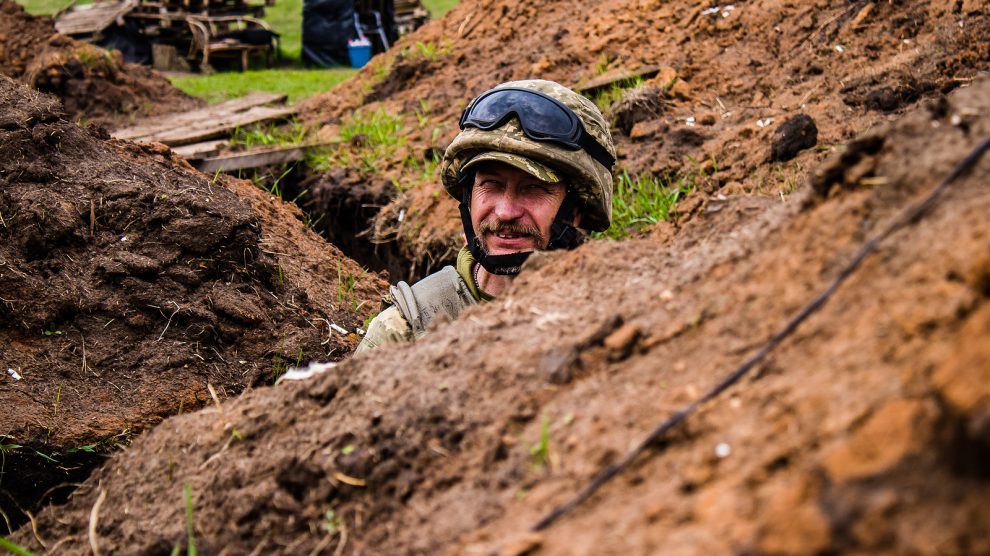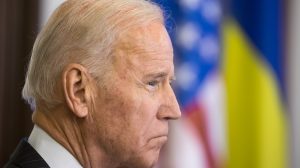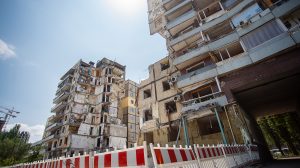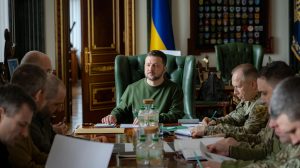You can read all of our coverage of Russia’s invasion of Ukraine, including explainers and articles offering context and background information here.
Russia’s invasion of Ukraine
A substantial Ukrainian force was pushing an assault against Russian positions in the south of the country on Thursday, in an intensification of fighting that some Ukrainian officials and western analysts said marked the start in earnest of Kyiv’s much-vaunted counteroffensive.
The combat against Russian positions south of Zaporizhzhia included western-supplied tanks and armoured vehicles and infantry backed by artillery. There were reports of intense fighting outside the town of Tokmak, a key Russian logistical hub.
Asked about US media reports that the counteroffensive had begun, a spokesperson for Ukraine’s general staff said: “We have no such information. And we do not comment on anonymous sources.”
The Nova Kakhovka dam in Russian-occupied southern Ukraine, which houses Ukraine’s largest reservoir by volume and a hydroelectric power plant, suffered a collapse early Tuesday, flooding 29 communities along the Dnipro river.
Ukrainian officials said thousands of people had been evacuated from their homes, and that hundreds of thousands had no access to clean drinking water. They warned that it could take years for affected farmland to recover
The cause of the dam breach remains unclear, and both sides continue to blame each other. Russian President Vladimir Putin has portrayed it as a deliberate attack — a “barbaric act”— while Kyiv accused Moscow’s forces of committing an act of “ecocide.”
On Thursday, a French nuclear safety organisation said that the cooling pond at the Zaporizhzhia nuclear power plant is in danger of collapse as a result of the destruction of the Kakhovka dam and the draining of its reservoir.
The World Health Organization (WHO) meanwhile has warned of the risk of a cholera outbreak in the breached dam area.
Belgium is probing alleged use of its weapons in attack on Russia.
United States officials said the Russian fighters aligned against Moscow who launched a cross-border raid from Ukraine into the Belgorod region of Russia last week used at least four tactical vehicles originally given to Ukraine by the United States and Poland.
The fighters also carried rifles made by Belgium and the Czech Republic, raising questions about the unintended use of NATO-provided equipment and Kyiv’s commitments to secure materiel supplied by its supporters.

Other news from the region
Bulgaria’s parliament on Tuesday voted in a government led by Prime Minister Nikolai Denkov, which is set to implement reforms that would lead the Balkan country into the euro zone and Schengen groupings of European nations. One hundred and thirty-two deputies in the 240-seat parliament voted for Denkov, ending a two-year political deadlock. The political uncertainty has forced EU member Bulgaria to delay its target date for adopting the euro, and it has yet to approve a budget bill for 2023.
Slovenia soundly defeated Moscow’s close ally Belarus on Tuesday for a seat on the United Nations (UN) Security Council starting in January. The race between the two members of the UN’s East European group was the only contested election for five seats on the UN’s most powerful body and was closely watched because of their opposing views on Russia’s invasion of Ukraine. In the secret ballot election in the 193-member UN General Assembly, Slovenia received 153 votes while Belarus got 38 votes.
Gabriel Escobar, the US envoy to the Western Balkans said on Wednesday that Kosovo must give greater autonomy to Serb-majority municipalities in the north of the country if it wants to move closer to joining NATO and the European Union and urged Kosovo to withdraw police and mayors from their offices in Serb-majority areas to de-escalate tensions and then hold new municipal elections in which Serbs would participate. Violence has flared since Kosovo authorities installed ethnic Albanian mayors in offices in the municipalities after they were elected in a vote in April on a turnout of just 3.5 per cent, angering Serbs who form a majority in northern areas and who had boycotted the event.
Prime Minister Nikol Pashinyan of Armenia has raised the prospect of ceding control of an occupied exclave of Azerbaijani territory inside Armenia, but it remains unclear if that is a signal of an impending Armenian concession or a rhetorical attempt to lower domestic expectations. There are several exclaves that are effectively islands of de jure Azerbaijani territory inside Armenia, or vice versa, that are relics of idiosyncratic Soviet border-drawing practices. Pashinyan has met with Azerbaijani president Ilham Aliyev four times in as many weeks — including most recently on June 3 in Ankara after the inauguration of Turkish president Recep Tayyip Erdoğan — and the question of exclaves is one of the thorniest remaining as they work to delineate their countries’ border.
The European Commission announced Wednesday it is suing Poland over the so-called ‘Tusk law’ creating a special body to probe Russian influence in Polish politics, which critics say violates the Polish constitution and could be used to intimidate political opponents. On June 4, a record-breaking half-million Poles demonstrated in Warsaw against the ruling PiS party and the law. This case will be only the latest in a series of disputes between Brussels and Warsaw over the Polish authorities’ repeated violations of the EU’s rule-of-law standards, with the European Court of Justice ruling PiS’s controversial judicial overhaul violated the right to have an independent and impartial judiciary on June 5.
A group of abortion rights cases filed by eight women against Poland was inadmissible, the European Court of Human Rights (ECHR) ruled unanimously on Thursday, citing a lack of strong medical evidence, among other factors. The court added that about 1,000 other similar cases awaited its decision. Thursday’s ruling relates to eight Polish women who argued that their human rights were violated by a 2020 verdict by Poland’s Constitutional Tribunal that banned the termination of pregnancies where the foetus had defects.
A fifth ‘Serbia against violence’ protest was held on Saturday, exactly one month after the first of two mass shootings, with protestors demanding the replacements of both Interior Minister Bratislav Gašić and the head of national intelligence agency BIA, Aleksandar Vulin, and for TV stations that ‘promote violence’ to have their licences revoked. Organised by parts of the opposition, the protest saw thousands of people gather at the National Assembly in downtown Belgrade. Famous Serbian actors and TV personalities spoke from the stage, calling on the protesters not to give up.
Azerbaijan’s government has once again urged its citizens not to travel to neighbouring Iran after news emerged an Azerbaijani student who went missing three months ago in Iran has been charged with espionage there and is facing trial. Farid Safarli, a student in Germany, went missing in early March after he travelled to Tehran reportedly to meet his Iranian girlfriend. Until now, there had been no news of Safarli’s whereabouts, despite Azerbaijan sending an inquiry to Iran and Safarli’s mother traveling to Iran to search for him. Relations between Azerbaijan and Iran have severely deteriorated over the last few years as the threat of conflict looms.
Unlike many news and information platforms, Emerging Europe is free to read, and always will be. There is no paywall here. We are independent, not affiliated with nor representing any political party or business organisation. We want the very best for emerging Europe, nothing more, nothing less. Your support will help us continue to spread the word about this amazing region.
You can contribute here. Thank you.







Add Comment